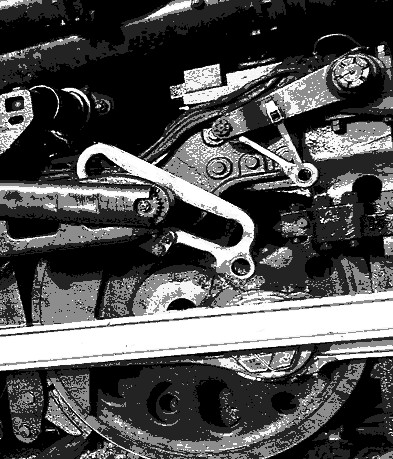Industrial effects roll on
 New research suggests the ill-effects of the Industrial Revolution are still being felt 200 years later.
New research suggests the ill-effects of the Industrial Revolution are still being felt 200 years later.
While the Industrial Revolution, powered by coal and steam engines, laid the foundations of modern society, a study from QUT has found some negative effects are still being felt.
A team of psychologists analysed personality data collected from 381,916 people across England and Wales and from 3,457,270 people across the US.
They discovered that people living in the former industrial heartlands of the UK and the US are more disposed to negative emotions such as anxiety and depressive moods, more impulsive and more likely to struggle with planning and self-motivation.
“Our findings show that, generations after the white heat of Industrial Revolution and decades on from the decline of deep coal mining, the populations of areas where coal-based industries dominated in the 19th century retain a ‘psychological adversity’,” said QUT’s Associate Professor Martin Obschonka from the Australian Centre for Entrepreneurship Research.
Their paper - In the Shadow of Coal: How Large-Scale Industries Contributed to Present-Day Regional Differences in Personality and Well-Being – has been published in the Journal of Personality and Social Psychology.
“It is our belief that this generational unhappiness and dysfunction is the inherited product of selective migrations during mass industrialisation compounded by the social effects of severe work and living conditions,” Professor Obschonka said.
“This damaging cognitive legacy of coal is reinforced and amplified by the more obvious economic consequences of high unemployment and economic hardship we see today.”
Co-author Dr Jason Rentfrow, from the University of Cambridge's Department of Psychology, added: “Regional patterns of personality and well-being may have their roots in major societal changes underway decades or centuries earlier, and the Industrial Revolution is arguably one of the most influential and formative epochs in modern history.”
The team analysed individual test scores by looking at the ‘Big Five’ personality traits: Extraversion, Agreeableness, Conscientiousness, Neuroticism and Openness. The results were further dissected by characteristics such as altruism, self-discipline and anxiety.
While researchers said there would be many factors behind the correlation between personality traits and historic industrialisation, the two most likely ones are migration and socialisation (learned behaviour).
“The people migrating into industrial areas were often doing so to find employment in the hope of escaping poverty and distressing situations of rural depression - those experiencing high levels of 'psychological adversity',” said Professor Obschonka.
“However, people that left these areas, often later on, were likely those with higher degrees of optimism and psychological resilience.
“This "selective influx and outflow" may have concentrated so-called 'negative' personality traits in industrial areas - traits that can be passed down generations through combinations of experience and genetics.”
The study's authors argue their findings have important implication for the future economic and social trajectories of these regions as regional personality patterns shape these trajectories.
“The decline of coal in areas dependent on such industries has caused persistent economic hardship in early industrialised countries- most prominently high unemployment. This is only likely to have contributed to the baseline of psychological adversity the Industrial Revolution imprinted on some populations,” said co-author Michael Stuetzer from Baden-Württemberg Cooperative State University, Germany.
“These regional personality levels may have a long history, reaching back to the foundations of our industrial world, so it seems safe to assume they will continue to shape the well-being, health, and economic trajectories of these regions.”








 Print
Print